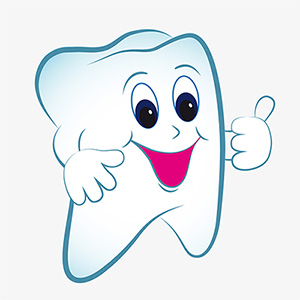When most people think about visiting a dentist, they imagine going in for a cleaning, teeth whitening or a routine procedure. But not every dental issue can be resolved at leisure. Sometimes there are dental emergencies, such as a broken or chipped tooth, severe mouth pain, or other circumstances, where a patient must see a professional within hours. These types of situations require seeing an emergency dentist. For some patients, it could be the same dentist who they see regularly. Others may have to visit another dentist if the one they frequent does not offer emergency services.
What is considered a dental emergency?
Much like any health issue, patients are often confused about what constitutes an emergency. Can they get away with home treatment? Or do they need to see an emergency dentist? The answer depends on the situation.
Dental emergencies are more common than people imagine. Per the American Family Physician, roughly 22 percent of Americans experience pain in their teeth or mouth at least once in six months.
The types of circumstances that constitute a dental emergency include:
- Severe pain and/or bleeding from teeth and/or gums.
- A lost or badly chipped tooth.
- A tooth that is loose in the mouth.
- Swelling and/or knots in the gums, which often indicate an infection.

Such incidents can happen because of an accident, such as a sports injury or chipping a tooth when biting into food. They can also happen because of poor dental hygiene, such as not brushing or flossing regularly. Diet and habits such as smoking can also contribute to poor oral health.
Patients should also understand that some situations do not require seeing an emergency dentist. For instance, a small chip in a tooth that is not causing any pain is not an emergency. In these situations, you can book an appointment with us to have it resolved. Minor toothaches are also not emergencies unless the pain continues to get worse.
When do you contact an emergency dentist?
Dentists who offer emergency services will have a dedicated number that a patient can dial in such an event. Remember that a dental emergency is not a situation where someone needs to call an ambulance or visit the emergency room. These emergency treatments are almost always handled at a dental office.
Call a dentist in your area that offers emergency services. It is better if it is the dentist a patient sees regularly, as the patient’s file and dental information will already be on record.
The administrator who answers the call will inform the patient about the next steps. It often involves traveling to the dental facility within the coming hours. Depending on the dentist and the nature of the emergency, treatment could take place within hours or early the next morning.

Did you know?
How do you pay for a dental emergency?
Patients are usually concerned about the financial aspect of seeing an emergency dentist. It is why having dental insurance or financing options are so important.
A quality dental insurance policy not only provides coverage for routine procedures but dental emergencies as well. It may require a small out of pocket payment, but insurance will cover most of the expenses.
Those without insurance will have to pay out of pocket. But it may be possible to agree on a payment plan with the dental facility that administers emergency services.
How do I avoid dental emergencies?
Being able to contact a dentist and get treatment within the hour is huge for so many patients. But it is best to avoid having to see an emergency dentist altogether.
The keys to avoiding emergency dental procedures involve having proactive oral hygiene and routinely visiting your dentist.
Brushing, flossing and using mouthwash consistently can ensure the teeth and gums are in good shape. And regular appointments for cleaning help a lot too.
